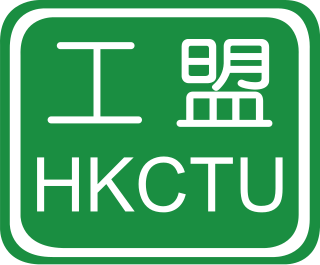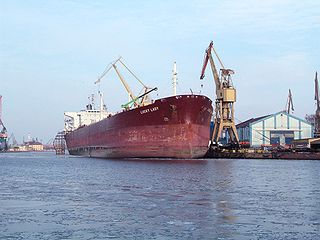Related Research Articles
In jurisprudence, duress or coercion refers to a situation whereby a person performs an act as a result of violence, threat, or other pressure against the person. Black's Law Dictionary defines duress as "any unlawful threat or coercion used... to induce another to act [or not act] in a manner [they] otherwise would not [or would]". Duress is pressure exerted upon a person to coerce that person to perform an act they ordinarily would not perform. The notion of duress must be distinguished both from undue influence in the civil law. In criminal law, duress and necessity are different defenses.

United Kingdom labour law regulates the relations between workers, employers and trade unions. People at work in the UK can rely upon a minimum set of employment rights, which are found in Acts of Parliament, Regulations, common law and equity. This includes the right to a minimum wage of £9.50 for over-23-year-olds from April 2022 under the National Minimum Wage Act 1998. The Working Time Regulations 1998 give the right to 28 days paid holidays, breaks from work, and attempt to limit long working hours. The Employment Rights Act 1996 gives the right to leave for child care, and the right to request flexible working patterns. The Pensions Act 2008 gives the right to be automatically enrolled in a basic occupational pension, whose funds must be protected according to the Pensions Act 1995.

The Hong Kong Federation of Trade Unions (HKFTU) is a pro-Beijing labour and political group established in 1948 in Hong Kong. It is the oldest and largest labour group in Hong Kong with over 420,000 members in 253 affiliates and associated trade unions. Presided by Ng Chau-pei and chaired by Kingsley Wong, it currently holds four seats in the Legislative Council and five seats in the District Councils.

The Hong Kong Confederation of Trade Unions (HKCTU) was a pro-democracy labour and political group in the Hong Kong. It was established on 29 July 1990. It had 160,000 members in 61 affiliates and representation in the Legislative Council of Hong Kong (LegCo) to challenge government policies and push for legal protection of worker and trade union rights. It was one of the two most influential labour groups in Hong Kong, with the other one being the pro-Beijing Hong Kong Federation of Trade Unions.

The International Transport Workers' Federation (ITF) is a democratic global union federation of transport workers' trade unions, founded in 1896. In 2017 the ITF had 677 member organizations in 149 countries, representing a combined membership of 19.7 million transport workers in all industrial transport sectors: civil aviation, dockers, inland navigation, seafarers, road transport, railways, fisheries, urban transport and tourism. The ITF represents the interests of transport workers' unions in bodies that take decisions affecting jobs, employment conditions or safety in the transport industry.
Economic torts, which are also called business torts, are torts that provide the common law rules on liability which arise out of business transactions such as interference with economic or business relationships and are likely to involve pure economic loss.
Tortious interference, also known as intentional interference with contractual relations, in the common law of torts, occurs when one person intentionally damages someone else's contractual or business relationships with a third party, causing economic harm. As an example, someone could use blackmail to induce a contractor into breaking a contract; they could threaten a supplier to prevent them from supplying goods or services to another party; or they could obstruct someone's ability to honor a contract with a client by deliberately refusing to deliver necessary goods.
Duress in English law is a complete common law defence, operating in favour of those who commit crimes because they are forced or compelled to do so by the circumstances, or the threats of another. The doctrine arises not only in criminal law but also in civil law, where it is relevant to contract law and trusts law.

Overseas Tankship (UK) Ltd v Morts Dock and Engineering Co Ltd, commonly known as Wagon Mound , is a landmark tort law case, which imposed a remoteness rule for causation in negligence. The Privy Council held that a party can be held liable only for loss that was reasonably foreseeable. Contributory negligence on the part of the dock owners was also relevant in the decision, and was essential to the outcome, although not central to this case's legal significance.

English contract law is the body of law that regulates legally binding agreements in England and Wales. With its roots in the lex mercatoria and the activism of the judiciary during the industrial revolution, it shares a heritage with countries across the Commonwealth, from membership in the European Union, continuing membership in Unidroit, and to a lesser extent the United States. Any agreement that is enforceable in court is a contract. A contract is a voluntary obligation, contrasting to the duty to not violate others rights in tort or unjust enrichment. English law places a high value on ensuring people have truly consented to the deals that bind them in court, so long as they comply with statutory and human rights.

Rookes v Barnard [1964] AC 1129 is a UK labour law and English tort law case and the leading case in English law on punitive damages and was a turning point in judicial activism against trade unions.

Torquay Hotel Co Ltd v Cousins [1968] EWCA Civ 2 (BAILII) is a UK labour law case concerning the liability of a union when its members take industrial action.

Lloyds Bank Ltd v Bundy[1974] EWCA 8 is a landmark case in English contract law, on undue influence. It is remarkable for the judgment of Lord Denning MR who advanced that English law should adopt the approach developing in some American jurisdictions that all impairments of autonomy could be collected under a single principle of "inequality of bargaining power."
Unconscionability in English law is a field of contract law and the law of trusts, which precludes the enforcement of voluntary obligations unfairly exploiting the unequal power of the consenting parties. "Inequality of bargaining power" is another term used to express essentially the same idea for the same area of law, which can in turn be further broken down into cases on duress, undue influence and exploitation of weakness. In these cases, where someone's consent to a bargain was only procured through duress, out of undue influence or under severe external pressure that another person exploited, courts have felt it was unconscionable to enforce agreements. Any transfers of goods or money may be claimed back in restitution on the basis of unjust enrichment subject to certain defences.

Pao On v. Lau Yiu Long [1979] UKPC 17 is a contract law appeal case from the Court of Appeal of Hong Kong decided by the Judicial Committee of the Privy Council, concerning consideration and duress. It is relevant for English contract law.
Economic torts in English law refer to a species of civil wrong which protects the economic wealth that a person will gain in the ordinary course of business. Proving compensation for pure economic loss, examples of an economic tort include interference with economic or business relationships.
Atlas Express v. Kafco Ltd. [1989] QB 833 is an English contract law case relating to duress.
An employment contract in English law is a specific kind of contract whereby one person performs work under the direction of another. The two main features of a contract is that work is exchanged for a wage, and that one party stands in a relationship of relative dependence, or inequality of bargaining power. On this basis, statute, and to some extent the common law, requires that compulsory rights are enforceable against the employer.
Collective action in the United Kingdom including the right to strike in UK labour law is the main support for collective bargaining. Although the right to strike has attained the status, since 1906, of a fundamental human right, protected in domestic case law, statute, the European Convention on Human Rights and international law, the rules in statute have generated significant litigation. The "right of workers to engage in a strike or other industrial action" is expressly recognised in the Trade Union and Labour Relations (Consolidation) Act 1992 section 180, and has been recognised repeatedly by the Court of Appeal as "a fundamental human right"., and the House of Lords.
Pakistan International Airlines Corp v Times Travel (UK) Ltd [2021] UKSC 40 is an English contract law case, concerning economic duress.